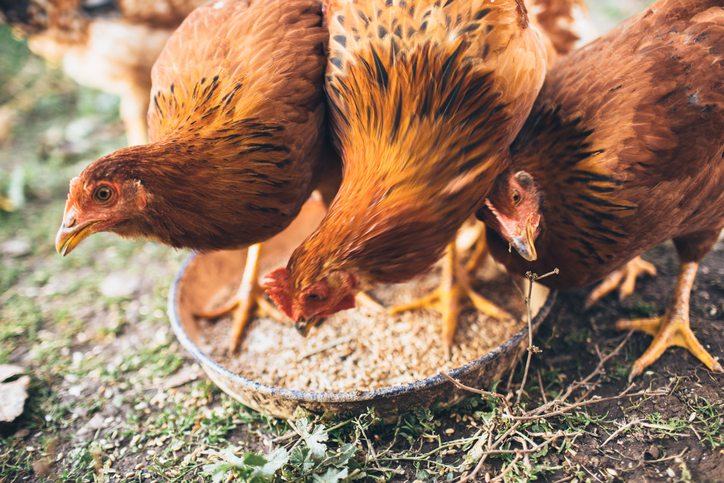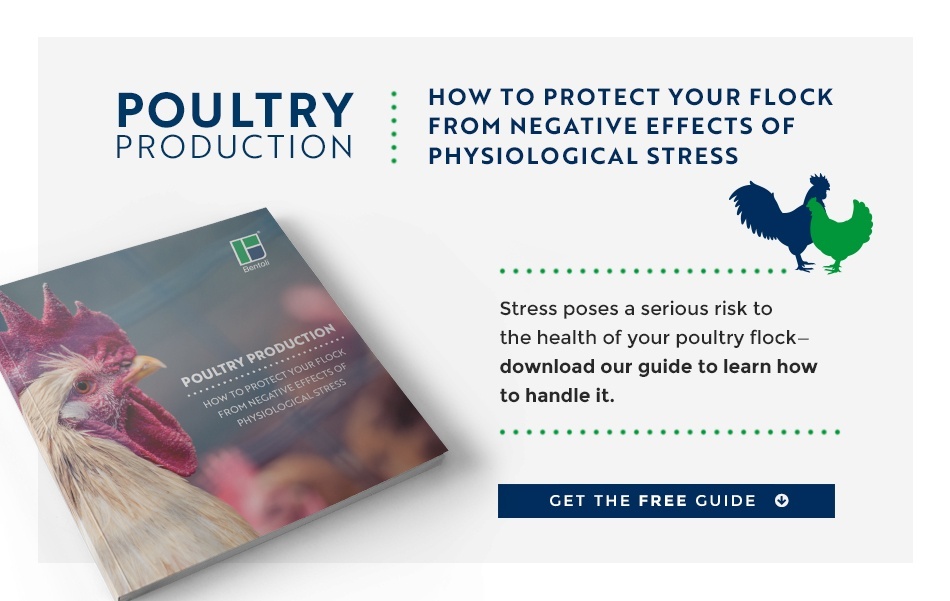
One of the keys to raising healthy meat chickens, like broiler chickens, is the creation of an effective stress management program. While stress is unhealthy for all living beings, chickens and other poultry are especially susceptible to acquiring negative symptoms that can be harmful to their health.
Stress in Broiler Chickens
It’s important to identify symptoms of poultry stress in the earliest stages possible to prevent dangerous health problems from occurring among your broiler flocks. It is just as important to ensure poultry’s physiological health as it is to ensure the humane treatment of your flock. Production levels increase exponentially in the absence of poultry stress.
The 5 most common symptoms of poultry stress:
- Weight loss
- Reduced egg production
- Lowered livability
- Increased feed conversion ratio
- Immune suppression and increased susceptibility to diseases
Methods for Minimizing Poultry Stress
Solutions for addressing poultry stress include maintaining a clean, calm, disease-free environment. In addition, broiler chickens and poultry in general dislike startling noises, extreme heat, and other unusual circumstances. Making sure your flocks have access to clean water and a healthy supply of pelleted feed will go a long way towards minimizing the risk of creating a stressful environment.
Identifying common areas where stress occurs should begin with an examination of living conditions. Do your chickens have access to fresh air and enough space to roam? Basic things like being able to scratch in the dirt can impact the way broiler chickens’ physiology reacts to surroundings.
5 areas in which poultry stress can occur:
- Physiological
- Nutritional
- Nervous
- Mental
- Climatic
Poor management of a flock will also cause stress, in addition to changes in the weather and seasonal patterns. It is essential to establish a positive routine for your chickens that benefits their health and removes elements that might cause poultry stress.
Negative Effects of Poultry Stress
Once you’ve identified the areas where your flock might experience stress, it’s time to identify the potential effects of stress in your chickens.
Common signs of poultry stress in broiler chickens:
- Increased mortality
- Decreased appetite
- Growth stagnation
- Poor feed conversion
- Increased production costs
- Easily contracted diseases and sickness
One of the most significant causes of poultry stress is heat stress. Chickens do not have sweat glands and are thus unable to regulate their own body temperature. A very common sign of heat stress is rapid panting, which indicates the chicken is in distress. Low mobility and poor appetite are other easily identifiable symptoms.
Creating a Nutritional Management Program
If you think your broiler chicken flock is suffering from poultry stress, it’s important to begin treating it as soon as possible. After identifying environmental factors contributing to stress, consider supplementing their diets with nutritional additives that will restore them to full health. This is especially important because poultry stress causes detrimental strain to a chicken’s natural reserves of nutrition and upsets gut performance.
Proteins, amino acids, vitamins, and minerals are the most common types of nutritional supplements. Electrolytes, probiotics, and fermentation products have also proven to be effective at restoring health.
Look for nutritional supplements that boost health by meeting these four qualifications:
- Overcomes stress caused by a variety of conditions and factors
- Promotes digestion and absorption of nutrients
- Improves feed intake, weight gain, and feed conversion ratio
- Accelerates the restoration of gut microflora following antibiotics or chemotherapy
Taking the time to raise broiler chickens in a stress-free, humane environment is the best way to ensure complete poultry health and high levels of production.


